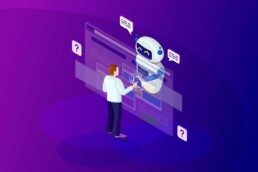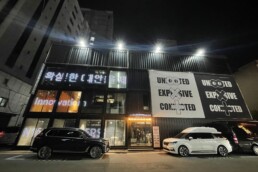Mercedes-Benz Korea kicked off its Startup Autoban Korea program and gave international startups to join for the first time! Hosted by Mercedes-Benz Korea and operated by N15, the program looked for startups that wanted to disrupt the mobility industry with fresh ideas.
In collaboration with the Ministry of SMEs and Startups, the Seoul Startup Hub, and KITA, startups got the chance to develop new mobility solutions and receive opportunities to grow their businesses.
Startup Autobahn Korea
Mercedes-Benz AG initiated Startup Autobahn to combine technical know-how and expertise between startups and large corporations in the automotive industry. The program started in Germany and quickly expanded to other countries like the US, China, Singapore, and more. In 2020, Korea joined as the 7th hosting country and selected 5 promising startups for the first Startup Autobahn Korea batch. The program brought various projects to life and enabled successful collaborations between startups and corporates.
Startups within the following fields were welcome to apply:
- Future Mobility – Transportation technologies such as electric vehicles, self-driving cars, or UAMs.
- Digital Transformation – The integration of technologies that streamline the work process.
- Sustainability – Planet-friendly innovations that push the world forward.
- 5G – Network, Mobile Edge Computing services, immersive media, and smart factories.
- Luxury – The creation of unique customer experiences via new technologies.
- Metaverse – The new method of communication in virtual worlds through AR, VR, or mixed reality.
- AI – AI robotics, autonomous systems, Edge AI, or AI Vision.
- LEO Satellite – Low Earth Orbit satellite communication technology, services, and products.
- Game Changer – Disruptive technologies that shape the future (Cyber security, Quantum tech, Next-gen sensors)
Benefits for Startups
100-day program
Selected startups were invited for a 100-day pilot phase to develop new concepts and prototypes with leading partner companies like SK Telecom, Hanwha Systems, LG Electronics, and others. Startups received PoC funding and technical support from mentors to turn their ideas into production-ready solutions.
Expo Day
The highlight of the Startup Autobahn Korea program was the final Expo Day which was held at the end of the year. Participants got the chance to present their projects and exhibit their products to global experts, partners, and investors.
Why Should Startups Join?
Korea is known as a technology-driven country. Aside from its advanced infrastructure, Korea is also fast in adopting new technologies. The government continuously implements new policies to foster entrepreneurship, making Korea an excellent ecosystem for startups to grow.
Additionally, corporates are trying to bridge the gap with startups and seek ways to support innovative entrepreneurs. One of the best ways to do so is through corporate accelerator programs like the Startup Autobahn Korea program. Joining the program in Korea will allow global startups to work in a tech-savvy environment and connect with key stakeholders in the industry.
Alumni Success Stories:
Owin is an O2O service platform that provides non-contact payment services to drivers. The startup’s mission is to make access to goods & services more convenient while on the road. Under last year’s Startup Autobahn Korea program, the startup worked on a pilot project with Mercedes-Benz Korea to bring the brand’s customer experience to another level.
“Nowadays, cars are not just for entertainment but have become an entire lifestyle. As a luxury brand, we want to provide the best experience to our customers. By working with Owin, we will be able to develop technologies for differentiated customer experiences quickly.” Sang-Hyun Yu, Navigation development manager of the Research & Development center at Mercedes-Benz Korea, shares.
 ImmersiveCast is another alumnus who successfully collaborated with SK Telecom, a core partner of Startup Autobahn Korea. The Korean mobile carrier strives to build a 5G mobile edge computing (MEC) platform and looks into cloud VR services that utilize a 5GX MEC infrastructure. With SKT’s upcoming plan to release commercial services using cloud VR, the company collaborated with ImmersiveCast, which provides a cloud VR solution called “VRaum.”
ImmersiveCast is another alumnus who successfully collaborated with SK Telecom, a core partner of Startup Autobahn Korea. The Korean mobile carrier strives to build a 5G mobile edge computing (MEC) platform and looks into cloud VR services that utilize a 5GX MEC infrastructure. With SKT’s upcoming plan to release commercial services using cloud VR, the company collaborated with ImmersiveCast, which provides a cloud VR solution called “VRaum.”
Owin and ImmersiveCast are only a few examples of successful PoCs under the program. Joining the program gives startups a great chance to work with industry-leading companies and access their vast network.
Popular
Related Posts
Startups in Korea developing AI-powered Chatbots
January 25, 2024
Open Innovation Korea Summit Ended in Great Success
November 9, 2022







